The Holy Quran remains a continual source of inspiration, knowledge, and faith for all of humanity, and as Muslims, we have a duty to ensure we are constantly striving to learn and better ourselves from the Quran.
Throughout the Quran, Allah reminds us all about the role of animals on earth, their own duty towards Allah, and how we (as humans) should be aware of treating animals with kindness and respect as creations of Allah. There are more than 200 verses in the Quran that mention animals, and six chapters are also dedicated to an animal: Surah Al Baqarah (The Cow), Surah Al Anaam (The Cattle), Surah Al Nahl (The Bees), Surah Al Naml (The Ants), Surah Al Ankabut (The Spider), and Surah Al Fil (The Elephant).
Below we have listed some of the animals mentioned in the Holy Quran, while acknowledging that Allah Knows Best as to why and how we acknowledge our shared existence with animals here on earth:
Ant
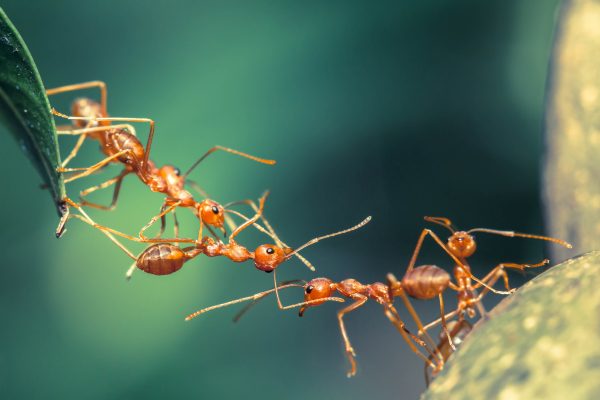
The ant, one of the smallest creatures on earth, has an entire chapter of the Quran named after them. Mentioned during a story about Prophet Solomon, the Quran states:
“And mustered for Solomon were his forces from among the Jinns and the humans and the birds. So all of them were kept under (his) control, Until when they reached the valley of the ants, one of the ants said, ‘O ants, enter your dwelling places, lest Sulaiman and his armies crush you unknowingly'” (27:17-18)
Ape
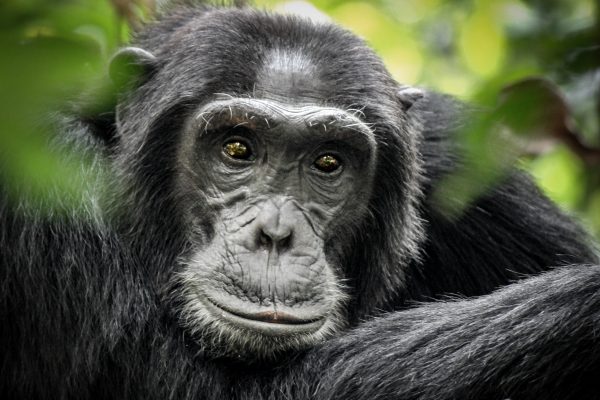
Apes are also mentioned in the Quran – interestingly, often as a punishment from Allah. Scientists today have discovered that humans share about 98% of our DNA with apes – while this could be explained in that we are all similar creations of Allah (while acknowledging that Allah Knows Best), it becomes highly interesting to study this sharing of similar DNA with these following verses:
“Say, ‘Shall I tell you about the ones whose retribution with Allah is worse than that (which you deem bad)? They are those whom Allah has subjected to His curse and to His wrath; and He has turned some of them into apes and swine, those who worshipped Taghut (Satan, the Rebel). Those are worse in their situation, and far more astray from the straight path'” (5:60)
“So when they were insolent about that which they had been forbidden, We said to them, ‘Be apes, despised'” (7:166)
“And you know the case of those of you who broke the Sabbath, how We said to them: ‘Become apes, despised and hated'” (2:65)
Bee
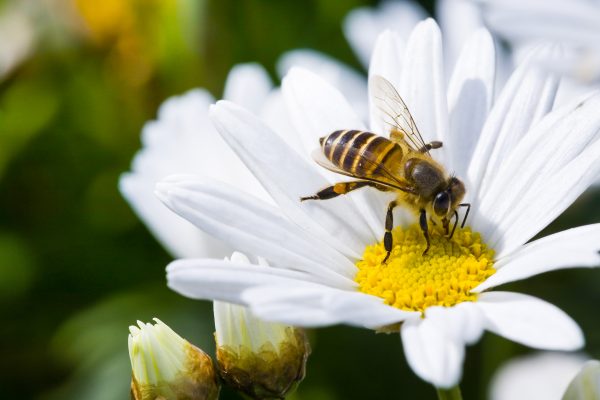
The bee is another animal that has an entire chapter of the Quran named after them, and in this verse, it appears that Allah Himself has instructed the bee in terms of how to live on earth:
“Your Lord revealed to the honeybee: ‘Make homes in the mountains, in the trees and in the structures they raise'” (16:68)
Bird
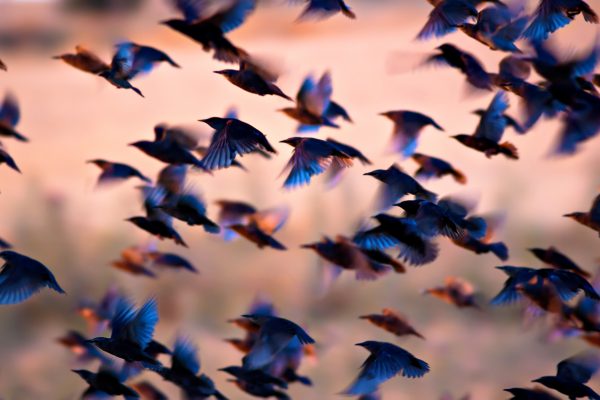
Birds, one of the most commonly mentioned animals in the Quran, appears 18 times in the Quran in 16 different verses. Here are some of the verses in which Allah mentions birds as part of his creation and gift to humankind on earth in better understanding Allah’s glory:
“Do they not look at the birds, held poised in the midst of (the air and) the sky? Nothing holds them up but (the power of) Allah. Verily in this are signs for those who believe” (16:79)
“Do you not see that all that is in the heavens and the earth, even the birds that go about spreading their wings in flight, extol His glory? Each knows the way of its prayer and of its extolling Allah’s glory. Allah is well aware of whatever they do” (24:41)
“Do they not see the birds above them, spreading out their wings and folding them in? None upholds them except the Most Beneficent (Allah). Verily, He is the All-Seer of everything” (67:19)
Calf
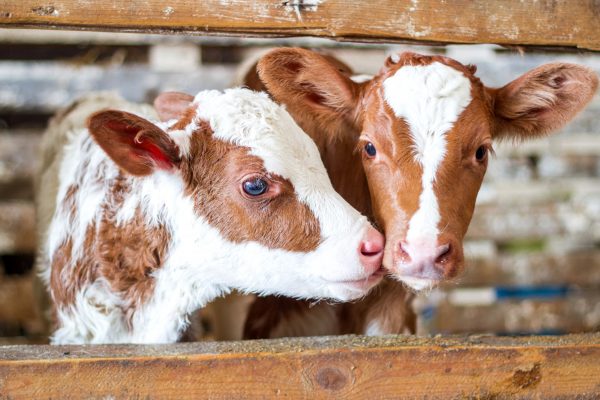
Most commonly associated with the story about Prophet Musa and his struggle against the people worshipping a calf, the Holy Quran mentions the calf 10 different times. Here are just a few:
“We appointed forty nights for Moses [on Mount Sinai] and then, while he was away, you took to worshipping the calf- a terrible wrong” (2:51)
“Remember when We took your pledge, making the mountain tower above you, and said, ‘Hold on firmly to what We have given you, and listen to [what We say].’ They said, ‘We hear and we disobey,’ and through their disbelief they were made to drink [the love of] the calf deep into their hearts. Say, ‘How evil are the things your belief commands you to do, if you really are believers!’” (2:93)
Camel
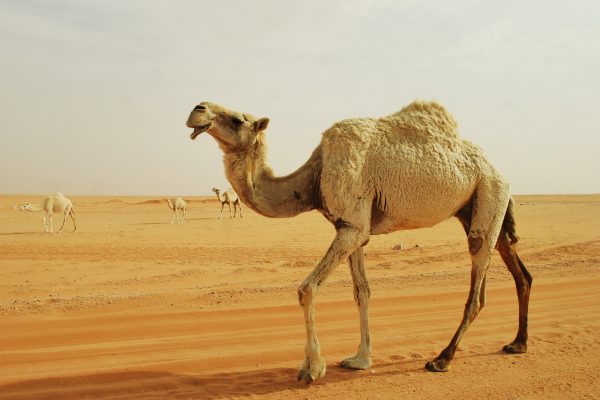
Mentioned 15 times throughout the Quran, the camel is often framed as an animal not to be harmed – and in regards to the female camel, is often mentioned as a “trial” and “clear sign”. Here are some examples of when the camel is mentioned within the Holy Quran:
“We are going to send the she-camel as a trial for them; so watch them and keep patience” (54:27)
“And nothing stops Us from sending the Ayat (proofs, evidences, signs) but that the people of old denied them. And We sent the she-camel to Thamud as a clear sign, but they did her wrong. And We sent not the signs except to warn, and to make them afraid (of destruction)” (17:59)
“Verily, those who belie Our Ayat (proofs, evidences, verses, lessons, signs, revelations, etc.) and treat them with arrogance, for them the gates of heaven will not be opened, and they will not enter Paradise until the camel goes through the eye of the needle (which is impossible). Thus do We recompense the Mujrimun (criminals, polytheists, sinners, etc.)” (7:40)
“And the messenger of Allah said to them, ‘[Do not harm] the she-camel of Allah or [prevent her from] her drink'” (91:13)
Cow
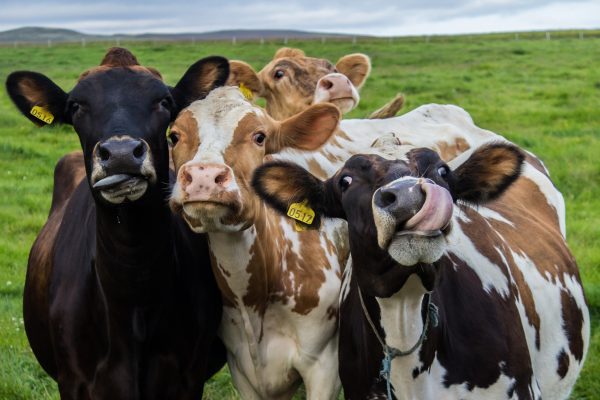
Named for the longest chapter of the Quran, Surah Al Baqarah, the cow is mentioned 9 times throughout – often in reference to either sacrifice and slaughtering or for food to eat:
“And [recall] when Moses said to his people, ‘Indeed, Allah commands you to slaughter a cow.’ They said, ‘Do you take us in ridicule?’ He said, ‘I seek refuge in Allah from being among the ignorant'” (2:67)
“And to those who are Jews We prohibited every animal of uncloven hoof; and of the cattle and the sheep We prohibited to them their fat, except what adheres to their backs or the entrails or what is joined with bone. [By] that We repaid them for their transgression. And indeed, We are truthful” (6:146)
Crow
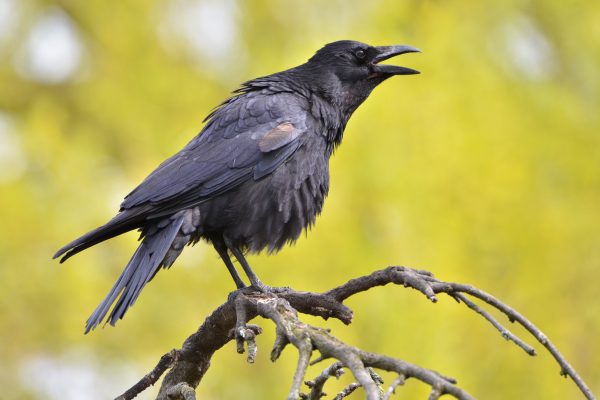
Associated often with death or darkness, the crow is mentioned once in the Quran in regards to the murder of Habil by Qabil (Cain and Abel), the son of Adam:
“Thereupon Allah sent forth a crow who began to scratch the earth to show him how he might cover the corpse of his brother. So seeing he cried: ‘Woe unto me! Was I unable even to be like this raven and find a way to cover the corpse of my brother?’ Then he became full of remorse at his doing” (5:31)
Dog
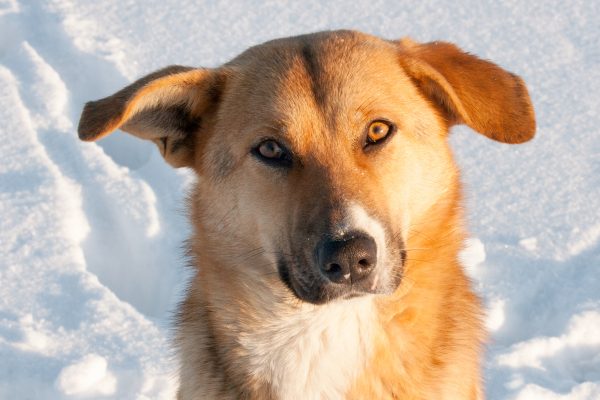
Appearing 3 times in the Quran, the dog is an often misunderstood animal throughout the Muslim world – both hated and loved, the dog is an interesting example of how Allah has placed us in relation to other creatures on earth. From its position of protecting the people of the cave to its simplicity, the dog is mentioned here:
“You would have thought they were awake, though they lay asleep. We turned them over, to the right and the left, with their dog stretching out its forelegs at the entrance. If you had seen them, you would have turned and run away, filled with fear of them” (18:18)
“Some will say, ‘(They were) three, the fourth of them being their dog,’ and some will say, ‘Five, the sixth of them being their dog, just making conjectures.’ And others will say, ‘Seven, the eighth of them is their dog.’ Say, ‘My Lord knows best about their number.’ No one knows them except a few, so do not argue about them except an apparent argumentation. And do not ask anyone of these about them” (18:22)
“If it had been Our will, We could have used these signs to raise him high, but instead he clung to the earth and followed his own desires – he was like a dog that pants with a lolling tongue whether you drive it away or leave it alone. Such is the image of those who reject Our signs. Tell them the story so that they may reflect” (7:176)
Donkey
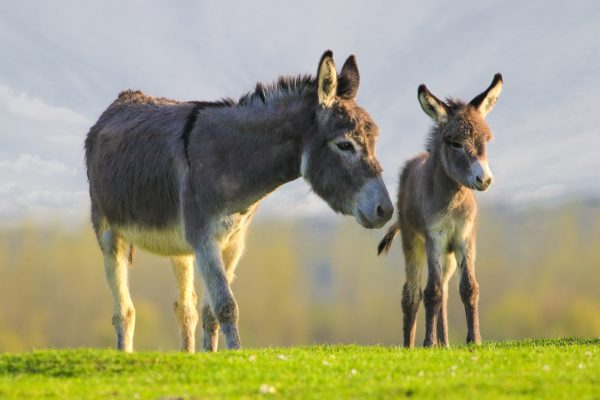
While many of us today see the donkey as a low, simple, or amusing animal, we must remind ourselves that Allah has created every single creature on earth Himself – there are lessons to learn even from the donkey. Here is where the donkey is mentioned in the Holy Quran:
“And be moderate in your walk, and lower your voice. Surely, the ugliest of voices is the voice of the donkeys” (31:19)
“The likeness of those who were entrusted with the (obligation of the) Taurat (Torah) (i.e. to obey its commandments and to practise its legal laws), but who subsequently failed in those (obligations), is as the likeness of a donkey who carries huge burdens of books (but understands nothing from them). How bad is the example (or the likeness) of people who deny the Ayat (proofs, evidences, verses, signs, revelations, etc.) of Allah. And Allah guides not the people who are Zalimun (polytheists, wrong-doers, disbelievers, etc.)” (62:5)
“And [He created] the horses, mules and donkeys for you to ride and [as] adornment. And He creates that which you do not know” (16:8)
Elephant
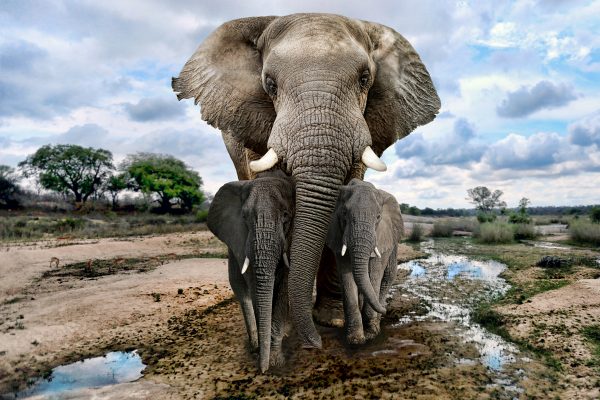
Although the elephant has an entire chapter named after them, this animal is in fact only mentioned once in the Holy Quran, although the chapter in question tells the story of how Allah sent down an army of birds to defeat those who attempted to take over Mecca:
“Have you not seen how your Lord dealt with the People of the Elephant? Has He not turned their plan into nullity? And He sent upon them flying birds in flocks, throwing upon them stones of baked clay, So He made them like green blades eaten (up)” (105:1-5)
Fish
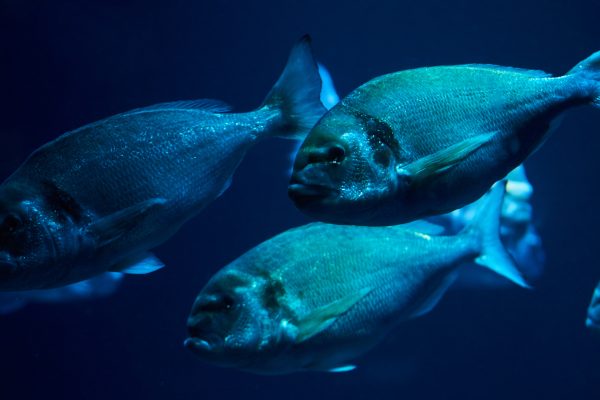
Fish are mentioned 5 times in the Quran, both in relation to a source of food and to the large fish that swallowed Prophet Yunus (depending on the translation and understanding, the story of Prophet Yunus pertains to either a large fish or a whale). Here is where fish are mentioned in the Holy Quran:
“Then a (big) fish swallowed him [Prophet Yunus] and he had done an act worthy of blame” (37:142)
“So, remain patient with your Lord’s judgment, and be not like the Man of the Fish [Prophet Yunus], he cried out while he was in anguish” (68:48)
“And ask them about the town that was by the sea – when they transgressed in [the matter of] the sabbath – when their fish came to them openly on their sabbath day, and the day they had no sabbath they did not come to them. Thus did We give them trial because they were defiantly disobedient” (7:163)
Fly
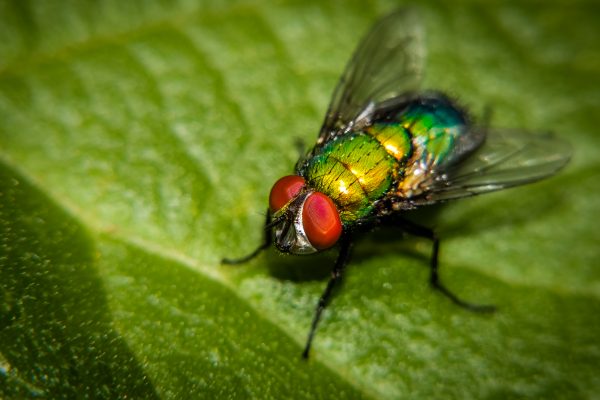
Although mentioned only once in the Quran, the significance of the fly should not be overlooked. Here is where it is mentioned in the Quran:
“O people, a parable is set forth: pay heed to it. Those who call upon aught other than Allah shall never be able to create even a fly, even if all of them were to come together to do that. And if the fly were to snatch away anything from them, they would not be able to recover that from it. Powerless is the supplicant; and powerless is he to whom he supplicates” (22:73)
Frog
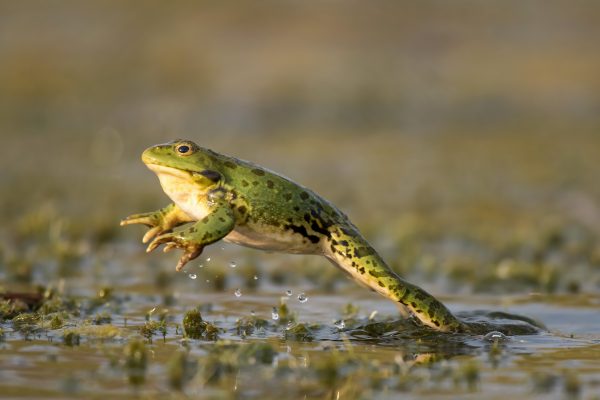
Frogs are also mentioned within the Quran, and in this case, is mentioned in connotation with the plague sent down as a punishment from Allah:
“So We sent on them: the flood, the locusts, the lice, the frogs, and the blood: (as a succession of) manifest signs, yet they remained arrogant, and they were of those people who were Mujrimun (criminals, polytheists, sinners, etc.)” (7:133)
Goat
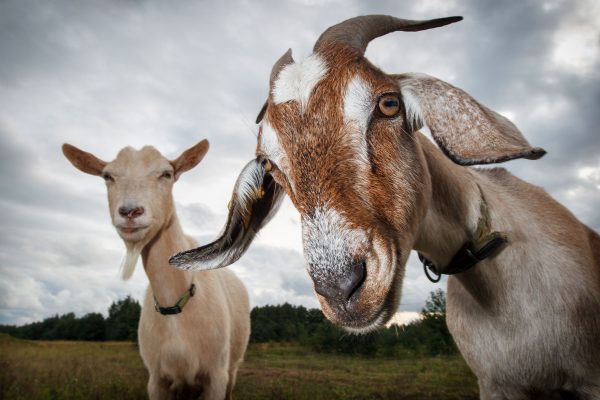
Mentioned only once within the Holy Quran, here the goat is named in relation to other animals such as sheep and cattle:
“[He gave you] livestock, as beasts of burden and as food. So eat what God has provided for you and do not follow in Satan’s footsteps: he is your sworn enemy; [God gave you] eight animals, in [four] pairs: a pair of sheep and a pair of goats – ask them [Prophet], ‘Has He forbidden the two males, the two females, or the young in the wombs of the two females? Tell me based on knowledge if you are telling the truth'” (6:142-3)
Hoopoe
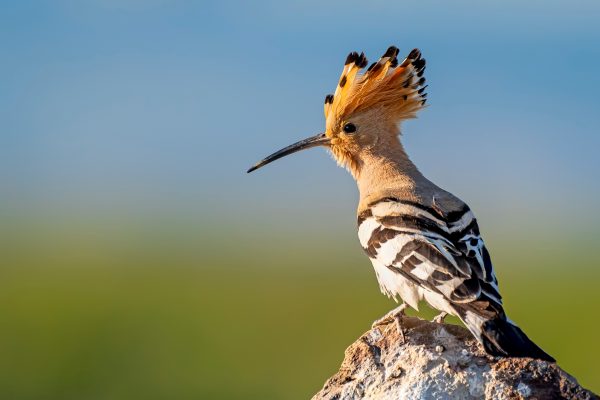
The hoopoe bird is part of the story of Prophet Solomon, in which the animal is a bringer of important news to Solomon, who was blessed with the ability to converse and understand the language of birds and animals. The hoopoe is mentioned here:
“(On another occasion) Solomon inspected the birds and said: ‘Why is it that I do not see the hoopoe? Is he among the absentees? I will surely punish him with a severe torment, or slaughter him, unless he brings me a clear reason’. But the hoopoe stayed not long, he (came up and) said: ‘I have grasped (the knowledge of a thing) which you have not grasped and I have come to you from Saba’ (Sheba) with true news'” (27:20-22)
Horse
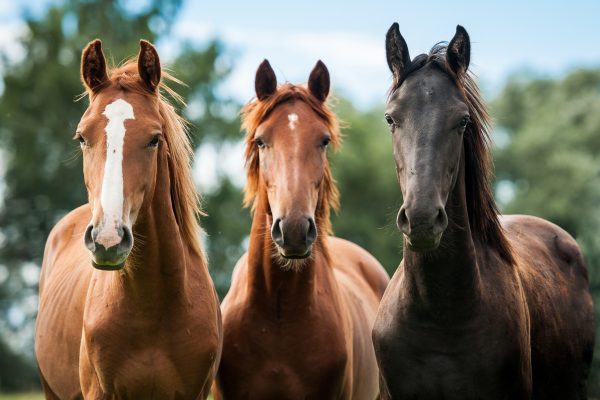
The horse is an animal both respected, heavily utilized in transport, domestication, and war, and is also mentioned in the Quran as an important animal in a part of the wealth and adornment of our earthly lives:
“Beautified for men is the love of things they covet; women, children, much of gold and silver (wealth), branded beautiful horses, cattle and well-tilled land. This is the pleasure of the present world’s life; but Allah has the excellent return (Paradise with flowing rivers, etc.) with Him” (3:14)
“And prepare for them whatever power and whatever garrisoned horses you can, to (spread) awe thereby into (the hearts) of the enemy of Allah and your enemy, and others, apart from them (i.e., besides them) that you do not know; Allah knows them. And whatever you expend in the way of Allah will be repaid you in full, and you will not be done an injustice” (8:60)
Lice
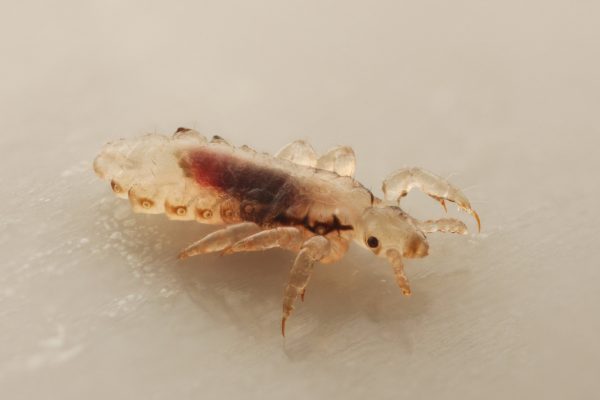
Mentioned in the same verse as frogs, in line with Allah sending down a plague as a punishment, lice are mentioned in the Holy Quran here:
“So We sent on them: the flood, the locusts, the lice, the frogs, and the blood: (as a succession of) manifest signs, yet they remained arrogant, and they were of those people who were Mujrimun (criminals, polytheists, sinners, etc.)” (7:133)
Lion
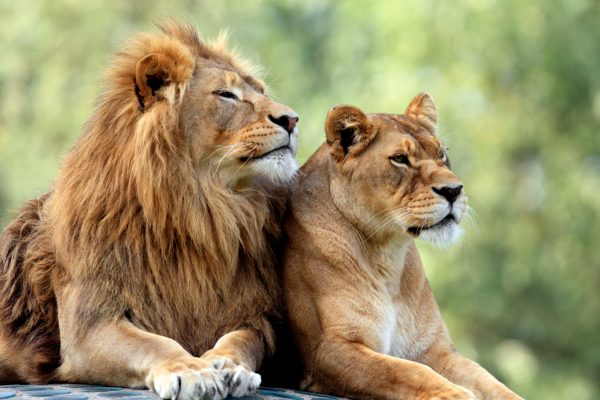
The lion is mentioned once in the Quran, in relation to those with disbelief running from a giant fear or large prey they cannot flee – in this case, with the lion used as a parable. The lion is mentioned in the Holy Quran here:
“So no intercession of intercessors will be of any use to them. Then what is wrong with them (i.e. the disbelievers) that they turn away from (receiving) admonition? As if they were frightened (wild) donkeys. Fleeing from a lion!” (74:48-51)
Locusts
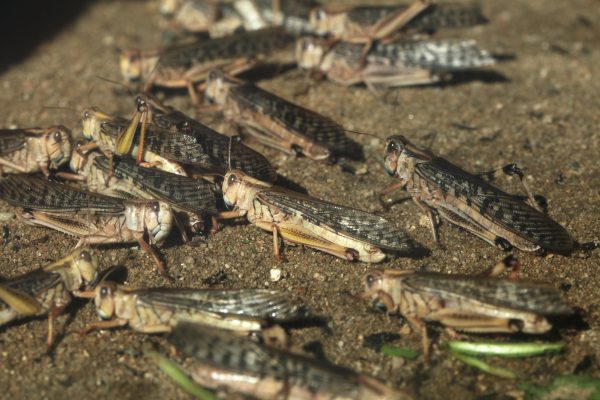
The third animal mentioned in the Quran with frogs and lice as part of a punishment and plague, locusts are mentioned here:
“So We sent on them: the flood, the locusts, the lice, the frogs, and the blood: (as a succession of) manifest signs, yet they remained arrogant, and they were of those people who were Mujrimun (criminals, polytheists, sinners, etc.)” (7:133)
Mosquito
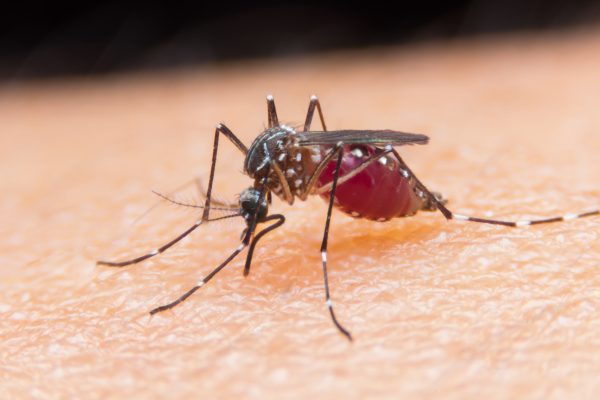
Although today mosquitos are seen as annoying and dangerous pests that can bite and spread disease, they are mentioned in the Holy Quran as part of a parable – reminding us of the power in understanding each creature’s relation to Allah Himself. The mosquito is mentioned here:
“Indeed, Allah is not timid to present an example – that of a mosquito or what is smaller1 than it. And those who have believed know that it is the truth from their Lord. But as for those who disbelieve, they say, ‘What did Allah intend by this as an example?’ He misleads many thereby and guides many thereby. And He misleads not except the defiantly disobedient” (2:26)
Moth
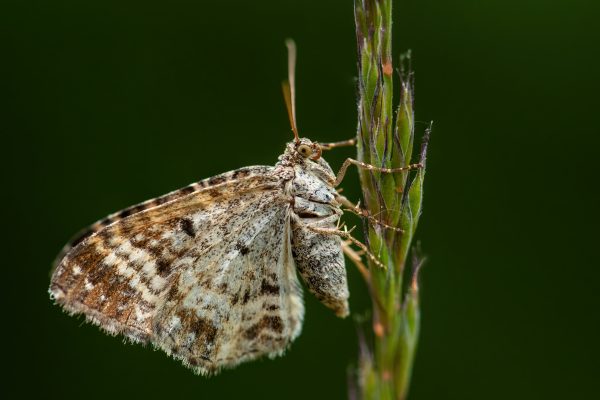
While the moth is only mentioned once within the Quran, it is in relation to the Day of Judgement, and remains a powerful reminder of how scattered and helpless we will be on that Day. The moth is mentioned in the Quran here:
“And what can make you know what is the Striking Calamity? It is the Day when people will be like moths, dispersed” (101:3-4)
Mule
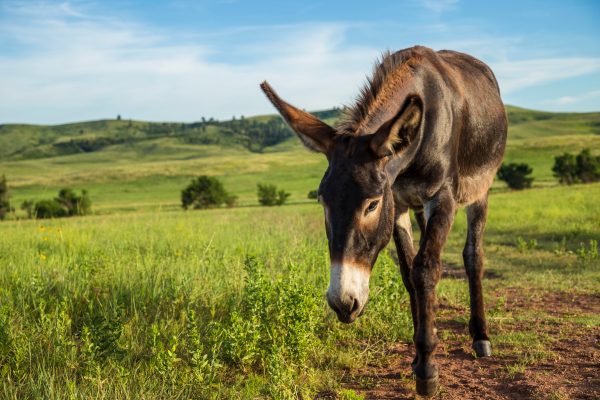
The mule is an animal that is the offspring of a male donkey and female horse, and today is often used as a means of transporting people and goods. Appearing in the Quran only once, in relation to donkeys and horses being used for adornment and transportation, the mule is mentioned here:
“And [He created] the horses, mules and donkeys for you to ride and [as] adornment. And He creates that which you do not know” (16:8)
Quail
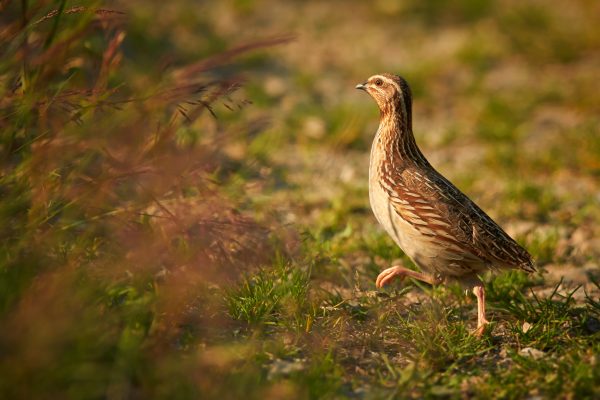
Mentioned in the Holy Quran 3 times, the quail is mostly understood to be in relation to Allah’s gift to humankind for a source of food and good tidings. The quail is mentioned here:
“And We shaded you with clouds and sent down on you Al-Manna and the quails, (saying): ‘Eat of the good lawful things We have provided for you,’ (but they rebelled). And they did not wrong Us but they wronged themselves” (2:57)
“O Children of Israel, We delivered you from your enemy, and We made an appointment with you at the right side of the mount, and We sent down to you manna and quails, [Saying], ‘Eat from the good things with which We have provided you and do not transgress [or oppress others] therein, lest My anger should descend upon you. And he upon whom My anger descends has certainly fallen [i.e., perished]'” (20:80-1)
“And We divided them into twelve descendant tribes [as distinct] nations. And We inspired to Moses when his people implored him for water, ‘Strike with your staff the stone,’ and there gushed forth from it twelve springs. Every people [i.e., tribe] knew its watering place. And We shaded them with clouds and sent down upon them manna and quails, [saying], ‘Eat from the good things with which We have provided you.’ And they wronged Us not, but they were [only] wronging themselves” (7:160)
Sheep
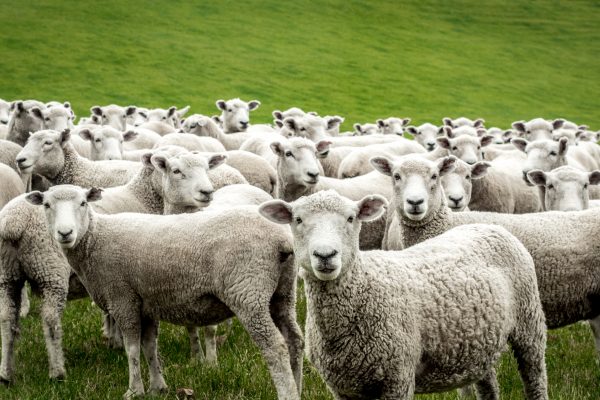
Sheep, and ewes – which are female sheep – are mentioned numerous times in the Holy Quran. Commonly associated with the Prophet Musa and Prophet Dawud, here are some instances when sheep are mentioned in the Quran:
“‘And what is that in your right hand, O Musa (Moses)?’ He said: “This is my stick, whereon I lean, and wherewith I beat down branches for my sheep, and wherein I find other uses'” (20:17-18)
“And remember Dawud and Solomon, when they gave judgment in the matter of the field into which the sheep of certain people had strayed by night: We did witness their judgment” (21:78)
“He (Dawud) said, ‘He has certainly wronged you by demanding your ewe to be added to his ewe. Many partners oppress one another, except those who believe and do righteous deeds, and very few they are.’ And Dawud realized that We had put him to a test, so he prayed to his Lord for forgiveness, and bowing down, he fell in prostration, and turned (to Allah)” (38:24)
Snake
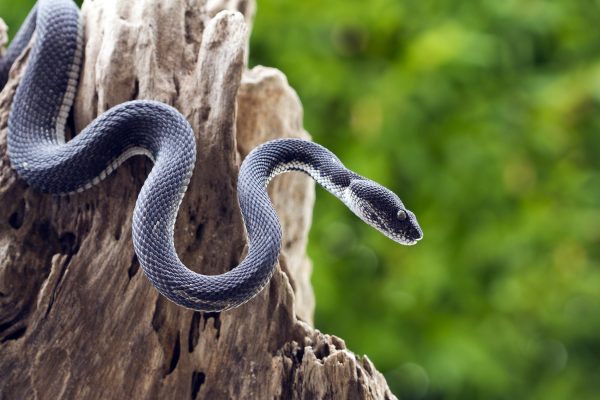
Snakes are often feared and loathed around the world – and in the Quran, snakes are mentioned in relation to Prophet Musa when he is with the magicians in the Pharoah’s court and his staff (or cane) is turned into a snake:
“Then (Moses) threw his rod, and behold! it was a serpent, plain (for all to see)!” (7:107)
“So, he threw down his staff, and in no time it was a serpent, clearly visible, and he drew out his hand, and right then it was a white light to the onlookers” (26:32-33)
“‘And throw your stick!’ But when he [Prophet Musa] saw it moving as if it were a snake, he turned in flight, and looked not back. (It was said): ‘O Musa (Moses)! Draw near, and fear not. Verily, you are of those who are secure'” (28:31)
Spider
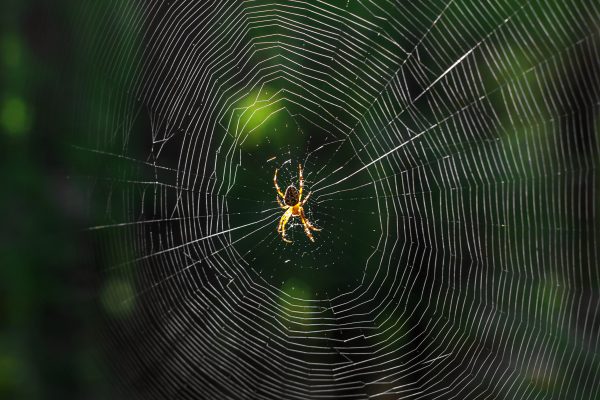
The spider, having an entire chapter named after it in the Quran, is an often misunderstood and wrongfully feared animal – and many Muslims remember the story of a spider’s web that saved the Prophet’s life while he was forced to take cover from those attempting to attack him. The spider is mentioned here in the Quran as part of a deeper parable:
“Those who take protectors other than God can be compared to spiders building themselves houses – the spider’s is the frailest of all houses- if only they could understand” (29:41)
Wolf
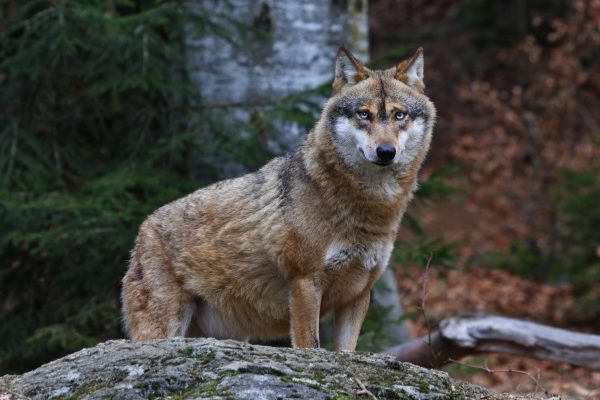
Mentioned in relation to Prophet Yusuf, the wolf is presented as a potentially dangerous animal that could attack or even kill Yusuf. The wolf is mentioned in the Holy Quran here:
“They said: ‘O our father! We went racing with one another, and left Yusuf (Joseph) by our belongings and a wolf devoured him; but you will never believe us even when we speak the truth’. And they brought his shirt stained with false blood. He said: ‘Nay, but your ownselves have made up a tale. So (for me) patience is most fitting. And it is Allah (Alone) Whose help can be sought against that which you assert'” (12:17-18)
Worm
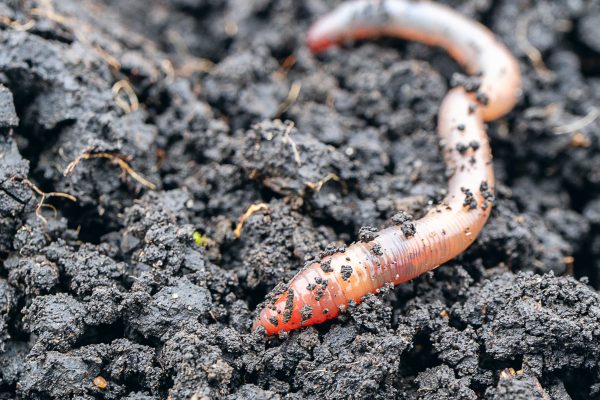
Although easily one of the most disregarded animals on earth, the worm in fact has much power and influence over the ecosystem – and with death (the worm is often used for imagery in describing everyone’s eventual death and burial in the ground, with our bodies disturbingly being the food for worms). The worm is interestingly mentioned in the Holy Quran here:
“Then when We decreed death for him [Sulaiman (Solomon)], nothing informed them (jinns) of his death except a little worm of the earth, which kept (slowly) gnawing away at his stick, so when he fell down, the jinns saw clearly that if they had known the unseen, they would not have stayed in the humiliating torment” (34:14)
This article was originally published by TMV TEAM. TMV is a grassroots media platform with an aim to inspire, inform and empower Muslims; through powerful and engaging Islamic content. (20th December 2020)

Thank you
jazakAllah Khair
I have added some more animals. Kindly check if these are correct
Spider
- Hudhud / Hoopoe
- Cow
- Bee
- Fly
- Elephant
- Pigs
- Crow
- Fish
- Donkey
- Camel
- Ababeel / Swift
- ANT
- Calf
- Frog
- Dog
- Goat
- Locust
- Lice
- Horse
- Lion
- Mosquito
- Moth
- Quail
- Sheep
- Snake
- Wolf
- Worms
Salaam Walaikum
Thank you for this. May Allah reward you. An amazing find 🙂
Impressive posts! My blog Webemail24 about Search Engine Optimization also has a lot of exclusive content I created myself, I am sure you won’t leave empty-handed if you drop by my page.
Very interesting and knowledgeable
Leave a comment